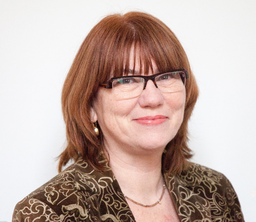Research about teaching and learning in higher education
What can and should higher education institutions know about their core activities? How do they acquire this knowledge and how is it translated into the institutional development of teaching and learning? Self-awareness as an educational institution and effective quality management are made possible by seeking out teachers’ and students’ perspectives.
Jump to
Questions about who does what and how can shed light on structures and processes.
Internal study on “research-based learning”
Research-based learning is a teaching and learning concept that encourages students to assume the role of researchers. Ideally, students learn by passing through all stages of a research process. Before formulating a hypothesis, students make initial investigations in their topic, then conduct a study and finally evaluate the findings. They work autonomously and actively shape these phases.
Research-based learning has become a popular concept that has been employed at many higher education institutions and is now an important topic of research across Germany.
In fall 2014, TH Köln became a partner in a multi-institutional research project of the “Excellence in Teaching” initiative (BMBF - Verbundprojekt ForschenLernen). The project “ForschenLernen” brings together researchers from Potsdam University of Applied Sciences, Humboldt University Berlin, and Ludwig-Maximilians-University Munich to examine 15 universities across the country and their research-based practices.
The implementation and impact of research-based learning are analyzed through five sub-projects. The overarching project seeks to institutionalize research-based learning in Germany to promote the networking of higher education institutions working towards its implementation. In order to advance the process of institutionalization, TH Köln is conducting an internal study on research-based learning.
The study analyses the following questions:
- How do teachers at TH Köln combine research and teaching, the university’s two core fields of activity?
- What opportunities do teachers offer students for engaging in current fields of research?
- What challenges and opportunities result from of the combination of research and learning within the framework of modules and classes?
- What are the needs of teachers who want to transform their teaching in research-based learning?
- What motivates teachers to implement research-based learning?
- How can research-based learning help to reach the university’s teaching and learning goals?
To answer these questions, we employ a mixed-method-design that includes document analysis, questionnaires, structured interviews as well as observations made during participation in classes.
Our goal is to identify successful concepts, potential, and possibilities to implement research-based learning at TH Köln. To complement the study, the competence team academic development and the departments jointly develop workshops as well as coaching concepts available to all.
Goals take shape – teaching-portfolios as key elements to develop a revised culture of teaching
Adult and further education programs are based on target group and needs analyses. Even if the objectives are clearly formulated und communicated, it does not necessarily mean that these goals are implemented and incorporated into the participants’ daily work. This study examines the extent to which the objectives of the coaching program for newly appointed professors are incorporated into the participants’ teaching portfolios.
Diversity at TH Köln: relevance for teaching and learning
A great variety in educational experiences and cultural backgrounds is a characteristic of higher education in North Rhine-Westphalia. Since NRW’s student population is more heterogeneous than in other parts of the country, NRW’s universities have to respond to this diversity by developing appropriate study programs. Teachers and lecturers play a crucial role in this process.
Findings of the Study
Throughout the past years our research has analyzed teachers’ and students’ diversity as a community of actors. Our studies have focused on identifying opportunities to cope with diversity and to use innovative teaching concepts for a successful study. Based on our findings, we have derived ideas for academic development models that have been subsequently tested and evaluated.
The following questions have guided our research project:
Diversity and its relevance for learning
- How do students use offered courses?
- How do students measure study successes and failures?
- How do students interact with teachers?
Diversity and its relevance for teaching
- Which teaching approaches, experiences and convictions shape lecturers’ teaching behavior?
- How do goals influence the teachers’ learning arrangement structures?
- How do teachers define challenges in the teaching and learning process and how do they overcome them?
Differences in perception: Teachers and students
- To what extent do students and teachers differently perceive success and failures?
- How do these different perceptions affect learning and teaching behavior?
- Are problems, misunderstandings or disagreements during interactions recognized as learning opportunities?
Measures for professional and teaching development
- What competencies do teachers need to successfully advise and guide students as they develop their competencies?
- Are there unexplored opportunities for cooperation between the different actors in teaching and learning?
- How can we build and further develop structures that promote high-quality teaching?


